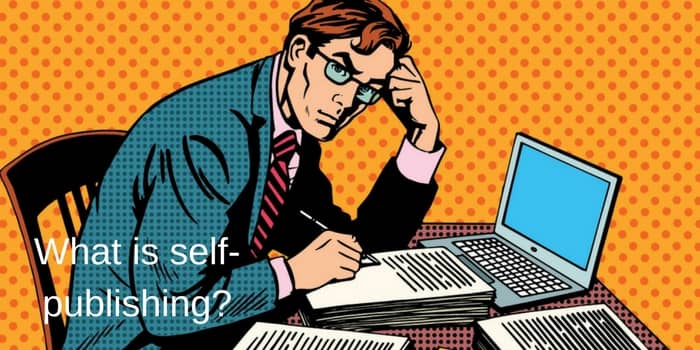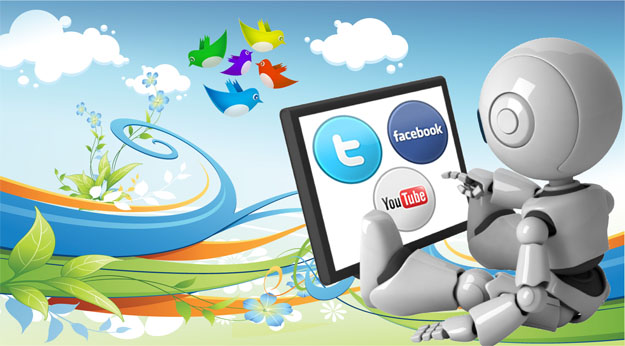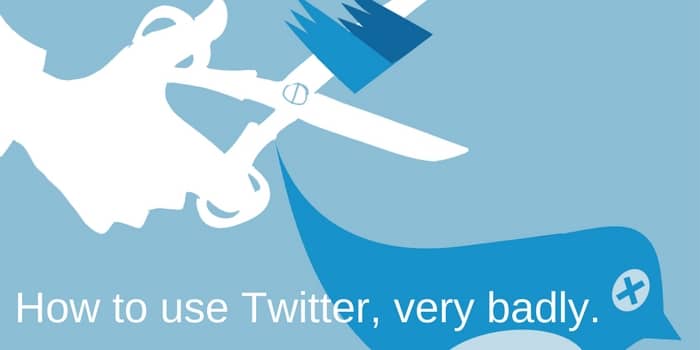 What is self-publishing exactly?
What is self-publishing exactly?
Whenever I read anything about self-publishing, I always get the feeling that it’s is being compared to traditional publishing. You know how it goes. Self-publishing’s standards are low, the quality of the stories are poor, every self-publisher should use an editor and have their covers produced professionally. A lot of advice, of which most is quite sound. That is if it were referring to producing traditionally published quality.
Although new, it’s probably time to stop all this comparing because self-publishing has nothing to do with publishing at all, but everything to do with the Internet. Whether it be ebooks or print on demand paperbacks, self-publishing is Internet-based and mostly free. There is absolutely no difference whatsoever in publishing a story on a blog and publishing it on Kindle at the same time. Both take about two minutes of your time and are free. Of course, Kindle gives the hope that your story might even make a few bucks. And why not on Smashwords as well? It’s free too.
Naturally, there is a lot of rubbish being self-published. But this is not a technology that had ever had quality in mind. It’s about content, and the more the better. Why? Because without content, Kindles, Nooks, Sony Readers and a zillion other e-reading devices just wouldn’t sell. Think about the Kindle. Without all the free and 99c self-published works, we would have all forgotten about it by now.
Self-publishing starts on a computer and ends on a computer and is available to anyone who can click a computer mouse. So enough with all this comparison nonsense. With everyone being given the opportunity to publish their work, there will, of course, be a range of standards. From utterly abysmal to wonderfully brilliant. But wow, does that make for a whole lot of content that makes a fortune for e-reader manufacturers and online book retailers.
So get off self-publishers’ backs and stop complaining. They’re only doing what Amazon et al wanted them to do. Publish bucket loads of content. And if Amazon et al don’t care about quality, why keep laying the blame on writers?




“Without all the free and 99c self published works, we would have all forgotten about it [the Kindle] by now.”
I’m not so sure about this. Using a Kindle or any e-reader is more about ease of access and how convenient it is than how much books cost. I use my Kindle app all the time, but the only .99 cent books I’ve bought are some friends whose work I want to support. The majority of my downloads are the same books I would buy from a bookstore, except I get instant gratification with an ebook.
I think the Kindle would exist and do fine even without self publishing and free/cheap books. It might not be as good a profit maker, is all.
I doubt I’ve ever read a blog post from a self-published author I’ve disagreed with more than this one. That’s not to say that much of what you say is wrong. But your conclusion, as I understand it, is that self-publishers shouldn’t worry about trying to achieve the same quality as a traditionally published book. IMO, your conclusion is wrong and your interpretation of some facts is off base as well.
That it is the internet, where much can be accomplished for free or close to it, is the reason why Smashwords and Amazon can make it possible for an author to publish for free. That neither does much in the way of quality control is also helpful in keeping costs down. You’re also correct, that Amazon loves have a lot of product. That’s their business, to have products that sell so little it isn’t economical for most businesses to offer them. If a self-publishing author’s goal is to help Amazon have more content, then your conclusion makes sense.
However, your conclusion is flawed, because Amazon isn’t your ultimate customer. This is the same flawed thinking that permeates many traditional publishers, where they look at bookstore chains and book distributors as their customer, instead of people who buy and read their books. Once that ultimate customer is expected to pay for your book, you’re out of the realm of blogs. Paying customers expect any product to meet some minimal quality standard and it is the failure of many self-publishers to clear that bar that keeps many Kindle owners from buying any self-published books.
As for self-published and $0.99 books being the reason for the success of the Kindle, you’re wrong here too. I’d be amazed if more than a small fraction of first-time Kindle buyers are even aware of self-published books when they make the buying decision. They’re buying the Kindle for the advantages it offers a reader. Most buy it intending to continue reading Grisham, Patterson, or Stephanie Meyers, just as they did pre-Kindle. That is what the majority of them continue to do. Some discover self-published books and give them a try. How many continue to spend some or all of their book buying dollar on self-published books is dependent on the quality they find when they do.
Thanks for your comments Big Al. However, I think you might have missed the point of my post. It was about the unfair comparison and often derogatory remarks many are making on social networks and forums with regard to self published authors. Most self published authors work extremely hard and make every endeavour on shoe string budgets to produce the best quality product they can. But it is grossly unfair to expect they can replicate the exacting quality of traditional publishing, which invests thousands of dollars in preparing their titles.
This said though, self published authors are adapting, being more inventive and are becoming more and more successful.
With regard to their success and my point about 99c books, I referred to the following data:
http://www.teleread.com/paul-biba/top-self-published-kindle-ebooks-of-2011-a-report-by-piotr-kowalczyk/
Amazon do not supply data on Kindle ebook sales, but it is clear from the data obtained in this report that 99c are extremely popular with Kindle owners.
Possibly I missed the point, Derek, but if so, I’m still struggling with understanding what it is.
First, with regards to 0.99 books – I don’t disagree with you that they have been very popular with Kindle owners. My comment was that despite the popularity, I question how big a driver they are in selling someone on buying their first Kindle. I think those and all self-published books, for most people, are something they discover after the fact. However, I may very well be wrong about that. My “evidence” of that is anecdotal and, as that kind of evidence tends to be, may not be reflective of the actual facts. Amazon may have evidence one way or another.
Regarding your comment that it is “grossly unfair to expect” a self-publisher to “replicate the exacting quality of traditional publishing, which invest thousands of dollars in preparing their titles,” which I *think* is your main point, that’s the point that I’m questioning. Who decides whether your “product” is acceptable, you or the customer? Some of those customers are fussier than others and some are more price sensitive than others. There is a feeling among many out there (authors, pundits, and other observers) that the blush may be off the rose of the 0.99 book. Some of that is the feeling that many readers are viewing the 0.99 books as falling much shorter as a group in hitting that trad published quality. Many authors who found success at that price point have been raising their prices, in some cases to distance separate their books from the 0.99 books and the perception readers have of them. I just looked and found that most (possibly all) of John Locke’s Donovan Creed series is now $2.99 (although I don’t know his reason for this change).
As a reader, my biggest investment in a book is my time. The difference between books that cost 0.99, 2.99, and 4.99 is insignificant when measured against the opportunity cost of the three or four hours I invest in reading the book. Many readers will abandon a book much more readily now than they would in the past, if it is apparent early on that the quality isn’t there. If they find they are abandoning too large a percentage of books at any price point, I have to believe they’ll stop buying books at that price point.
Your point that self published authors as a group are adapting and being inventive to become more successful is one that I agree with entirely. Many are finding a way to come close, meet, or (dare I say) sometimes even exceed the average quality of a traditionally published book. The competition for the reader’s money and reading time is one against all books, not just other self-published books. I think to say that authors shouldn’t be striving for the same quality as a large portion of their competition is leading them astray.
I think I understand what you’re saying, Derek, and I can see why BigAl disagrees. The point of your article, as I see it, is that comparing traditional publishing with self-publishing on the Internet is like comparing apples and oranges. We shouldn’t be surprised if some of the fruit turn out to be lemons!
I love to read and if the story is good, I am willing to overlook a few typos. The thing that really disappoints is the books that are barely a chapter long. I just get into a book and find out that it is over. If the book had several stories, you would at least be prepared for “short stories” and not expecting it to be a novel or a novella when purchased.
I have been pleasantly surprised by the quality of writing by the Indie writers; they do work very hard and put out a wonderful product that is very enjoyable. I have learned to step out of my normal genre and found that I enjoyed the stories more than I thought I would and broadened my interests. If it wasn’t for the Kindle, I probably would have stayed with purchasing Dean Koontz and Michael Connelly for the rest of my life.
The greatest thing about Kindle is that when a fellow writer lets you know that you misspelled or left out half the sentence, you can edit and upload a new copy in minutes.
Obviously, traditional publishing does not insure excellent quality. Nor does self-publishing suggest inferior quality. Such a simplistic representation belies the gray area in between. Since anyone can become self-published, regardless of aptitude, it is logical to assume that there are more poor quality self-published books, because there is no doorkeeper to screen out inadequate talent. Taking this a step further, since anyone can self-publish; poor writers receive no independent feedback. All authors require feedback in order to discover and remedy areas in need of improvement. Thus, a self-published author may continue to crank out poor quality writing, unaware that their skills require honing.